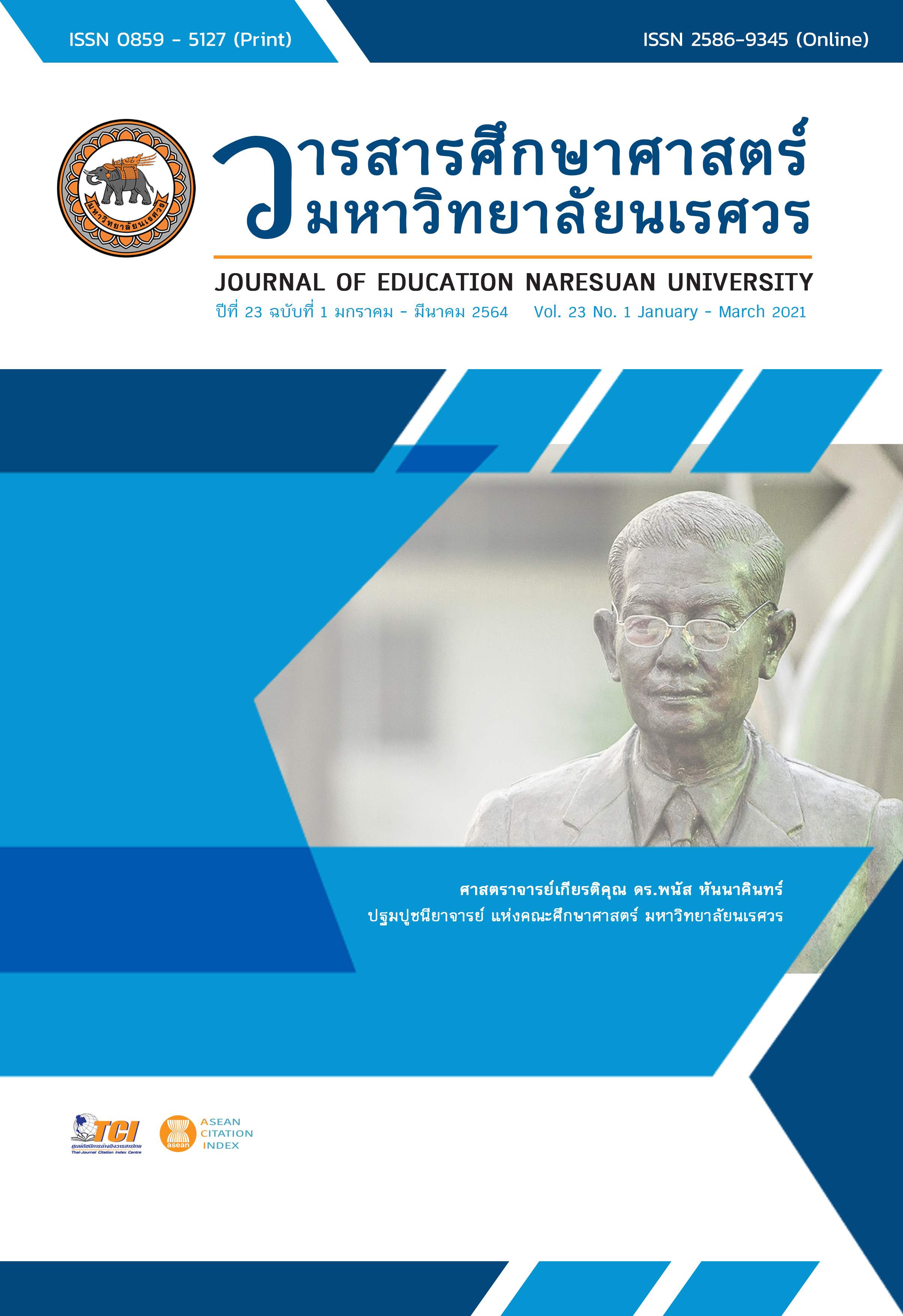EXPERIENCE-ENHANCEMENT ACTIVITY PROVISION FOR DEVELOPING EQ OF STUDENTS IN CHILD DEVELOPMENT CENTER FOR PARENTS การจัดกิจกรรมเสริมประสบการณ์เพื่อพัฒนา EQ ของเด็กนักเรียนในศูนย์พัฒนาเด็กเล็กสำหรับผู้ปกครอง
Main Article Content
Abstract
The purposes of this research were 1) to study experience-enhancement activity provision for developing EQ of students in child development center for parents, 2) to construct experience-enhancement activity provision for developing EQ of students in child development center for parents, and 3) evaluation of results; the parents satisfaction of experience-enhancement activity provision for developing EQ of students in child development center for parents in Aumphoe Mueang Nakhon Sawan. The sample used in the study was 30 parents by using random sampling. The instruments used in the study were 1) Experience-enhancement activity: jigsaw puzzle for developing EQ. 2) Quality evaluation form of experience-enhancement activity. 3) Observation form, measurement and evaluation form. 4) Parents’ satisfaction evaluation form. The data were analyzed by IOC, mean and standard deviation. The finding showed that: 1) developing EQ should develop Intelligent, Goodness and Happiness so the objective of activities had students knew vocabulary (Intelligent), students knew emotions (Goodness), students were active (Intelligent), students had fun (Happiness), students had eye-hand coordination, students were stimulated about thinking and imagination, and students had fine motor development. 2) There was 1 activity is jigsaw puzzle for developing EQ. It consisted of 8 sections. There were 3 experts who evaluated Experience-enhancement activity, all sections had IOC more than 0.5 so the activity can be used. 3) 30 parents satisfaction in experience-enhancement activity were the highest level. The mean was 4.55. The standard deviation was 0.50.
Article Details
The owner of the article does not copy or violate any of its copyright. If any copyright infringement occurs or prosecution, in any case, the Editorial Board is not involved in all the rights to the owner of the article to be performed.
References
Apiwattanasingha, D., & Jampon, O. (2008). The relationship between the emotional quotient and work success of the school administrator the office of the education service area of Kamphaengphet 1. The Golden Teak: Humanity and Social Science Journal, 14(2), 124-142. [in Thai]
Chuawanlee, W. (1999). Self-efficacy in encyclopedia of education. Bangkok: Faculty of Education Srinakharinwirot University. [in Thai]
Department of Mental Health. (2000). Emotional intelligence. Bangkok: Ro So Pho Printing House. [in Thai]
Goleman, D. (1995). Emotional intelligence: Why it can matter more than IQ. New York: Bantam Books.
Poomman, P. (2008). Early childhood education development for academic work productivity. Chonburi: Chonburi Printing. [in Thai]
Rebecca, N. (1998). The Comfort corner: Fostering resiliency and emotional intelligence. Childhood Education, 7(4), 200-204.
Sayorwan, W., Yantarapakorn, A., Jirasintipok, S., & angkum, K. (2017). The development of jigsaw puzzles image of English vocabulary for special need children at Boriboonsilsuksa School, Bangkok Province. Journal of Nursing and Education, 10(2), 46-57. [in Thai]
Srisa-ard, B. (2010). Introduction to research (8th ed). Bangkok: Suwiriyasan. [in Thai]
Supakul, J. (2007). Effects of participatory learning process on famillies’ knowledge and behaviors to promote emotional intelligence among children aged 3 – 5 (Independent study). Khon Kaen: Khon Kaen University. [in Thai]
Tapanadechopone, P. (2012). EQ repair. Thammasat University Pamphlet, 45(6), 2. [in Thai]
Tontipalacheewa, K. (2004). Teaching and learning in early childhood education. Bangkok: Edison Press Products. [in Thai]


